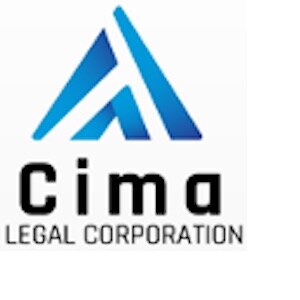Best Child Abuse Lawyers in Quito
Share your needs with us, get contacted by law firms.
Free. Takes 2 min.
Free Guide to Hiring a Family Lawyer
List of the best lawyers in Quito, Ecuador
About Child Abuse Law in Quito, Ecuador
In Quito, Ecuador, Child Abuse is taken very seriously by both the public and the legal system. Child abuse includes any form of physical, emotional, or sexual mistreatment, or neglect towards a child. Ecuador's comprehensive legal framework derived from the Constitution, the Civil Code, and the Children and Adolescents Code, provides several protections for children. Violations of these laws can result in severe penalties including prison sentences, fines, and custody changes.
Why You May Need a Lawyer
Getting a lawyer is crucial if you are involved in a Child Abuse case either as a victim, suspected abuser, or a concerned party. A lawyer can help explain your legal rights, guide you through the complex legal landscape, gather evidence, and represent you in court. Additionally, a lawyer can help secure protective measures for the abused child by liaising with Child Welfare Services. Arguably, a lawyer's role can be instrumental in ensuring the overall wellbeing of the child involved.
Local Laws Overview
Ecuadorian law provides comprehensive protections for children against all forms of abuse. The primary law governing Child Abuse is the Child and Adolescents Code. This Code establishes a framework for the protection and care of children, and guarantees a child's rights to survival, education, protection against exploitation and abuse, participation, and an adequate standard of living. It also provides a basis for the state's responsibility in this regard. Severe penalties are in place for physical, psychological, sexual abuse as well as neglect.
Frequently Asked Questions
What constitutes Child Abuse under Ecuador law?
Under Ecuadorian law, Child Abuse includes physical harm, sexual abuse, neglect, and psychological maltreatment of a child.
What are the possible penalties for Child Abuse in Ecuador?
The penalties for Child Abuse in Ecuador vary depending on the type and severity of the abuse, but may include imprisonment, fines, and loss of parental rights.
What help can a lawyer provide in a Child Abuse case?
A lawyer can provide legal advice, represent you in court, gather and present evidence, and liaise with child protection services on your behalf. They can also seek protective measures for the child involved in abuse.
What rights does a child have under Ecuadorian law?
Ecuadorian law ensures children's rights to survival, development, education, protection against exploitation and abuse, participation in decisions affecting them, and enjoy an adequate standard of living.
Can someone else report Child Abuse if the parent refuses to do so?
Yes, anyone can report suspected Child Abuse. In fact, certain professionals, such as teachers and healthcare workers, are legally obligated to report if they suspect abuse.
Additional Resources
The Council for the Rights of Children and Adolescents (Consejo Cantonal de Protección de Derechos) and The Ministry of Economic and Social Inclusion (Ministerio de Inclusión Económica y Social) are two principal governmental organisations associated with child rights and protection. Furthermore, non-profit organizations like CEPAM (Centro Ecuatoriano para la Promoción y Acción de la Mujer) also play a significant role in raising awareness around abuse and providing support.
Next Steps
If you need legal assistance with a Child Abuse issue, it is highly recommended to consult a lawyer specializing in Child Abuse or Family Law. They can provide the legal advice, guidance, and representation needed to protect the rights of the affected parties.
Lawzana helps you find the best lawyers and law firms in Quito through a curated and pre-screened list of qualified legal professionals. Our platform offers rankings and detailed profiles of attorneys and law firms, allowing you to compare based on practice areas, including Child Abuse, experience, and client feedback.
Each profile includes a description of the firm's areas of practice, client reviews, team members and partners, year of establishment, spoken languages, office locations, contact information, social media presence, and any published articles or resources. Most firms on our platform speak English and are experienced in both local and international legal matters.
Get a quote from top-rated law firms in Quito, Ecuador — quickly, securely, and without unnecessary hassle.
Disclaimer:
The information provided on this page is for general informational purposes only and does not constitute legal advice. While we strive to ensure the accuracy and relevance of the content, legal information may change over time, and interpretations of the law can vary. You should always consult with a qualified legal professional for advice specific to your situation.
We disclaim all liability for actions taken or not taken based on the content of this page. If you believe any information is incorrect or outdated, please contact us, and we will review and update it where appropriate.









